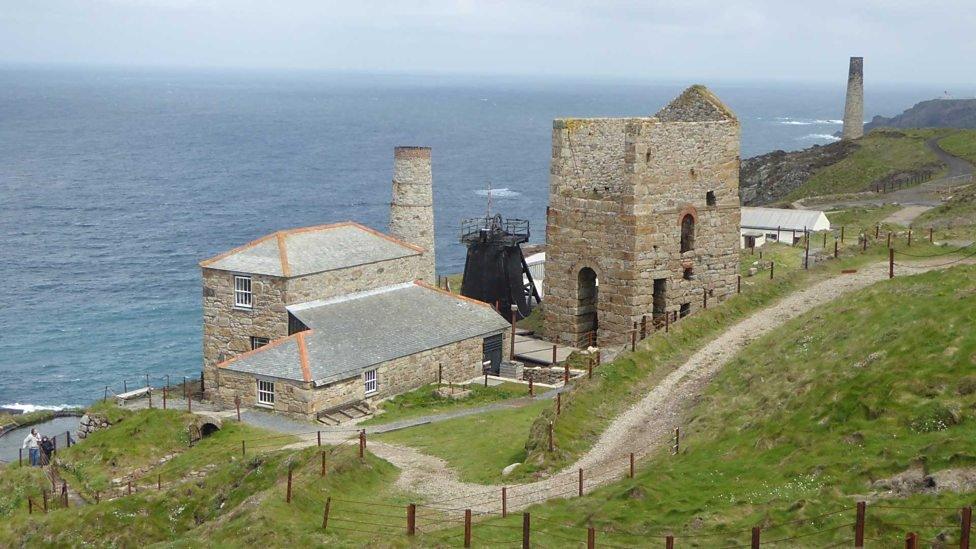Graves restored to mark Levant mining disaster centenary
- Published
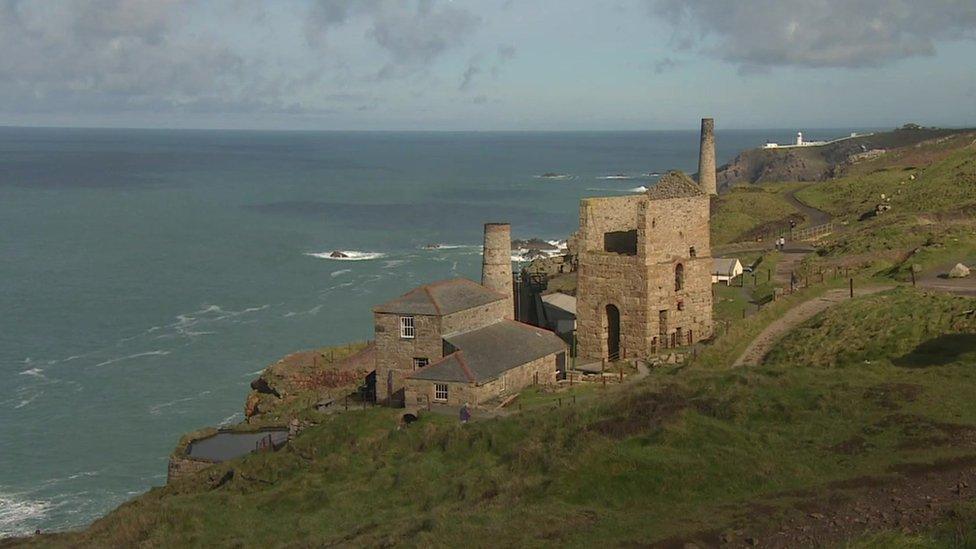
Thirty one men died in the Levant mining disaster 100-years ago
The graves of 15 men have been restored as part of the centenary commemorations of a Cornish mining disaster.
On 20 October 1919, a wooden transportation system called a "Man Engine" collapsed, killing 31 men in the Levant tin and copper mine.
The mine near St Just will be closed on Sunday to hold a memorial service for descendants of those who died.
It was one of the locations used for filming the BBC drama Poldark.
As part of the centenary, a team has been restoring the graves of 15 of the men who died in the disaster, who were buried at the St Just Miners' Chapel.
However, the exact location of one of those men within the chapel's grounds was unknown.
As part of a two-year project, it was discovered that the final man, William Ellis, was buried in a pauper's grave, well away from the other 14 men.
His great nephew, also William Ellis, said: "It's terrible really. Just to think he was underneath there, against the wall and nobody knew nothing.
"He did have family and they thought a lot of him, but he had just fallen on hard times."
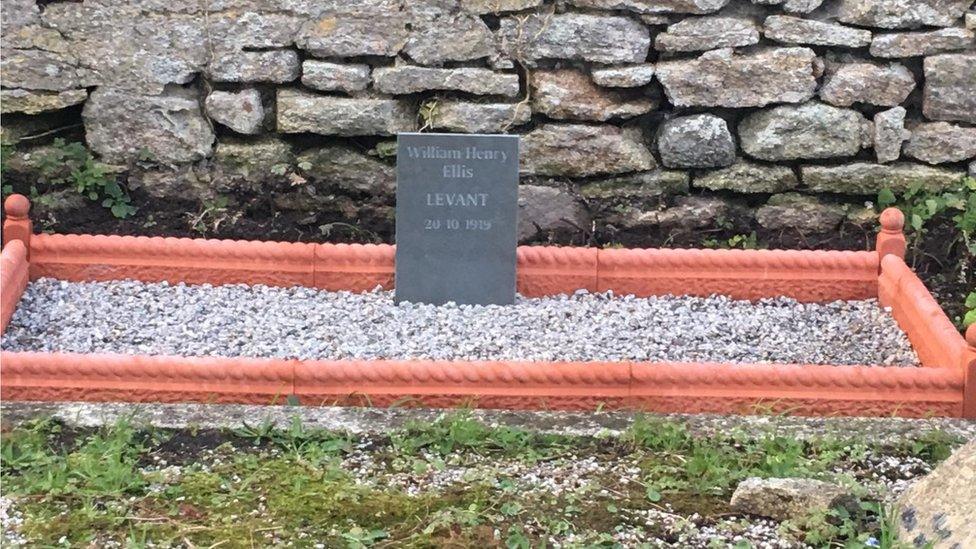
The location of William Henry Ellis's grave was unknown until a project to restore the graveyard
He has now been given a headstone, with Mr Ellis adding "he's got something wonderful now".
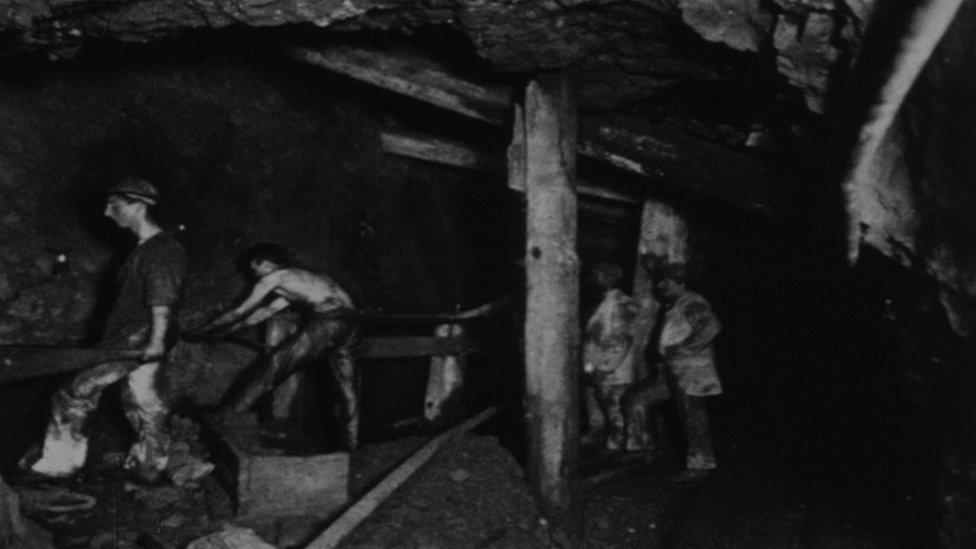
The Levant mine went about a mile and a half out to sea and is now owned by the National Trust
The man engine would take the miners into the deepest parts of the mine, and out again, using a system of moving wooden platforms.
On the fatal day, a link between the rod and the engine snapped with about 130 men on board, sending the timbers and platforms down the shaft.
The accident marked the beginning of the end of the once highly lucrative mine, which closed in 1933.
One unnamed miner, who was 15 at the time he worked there, told the BBC in 1961: "I saw a sight which I don't want to see again.
"It took three days to recover the men who had been trapped in the shaft and one man who was wounded and brought out alive."
- Published18 September 2011
- Published2 April 2018
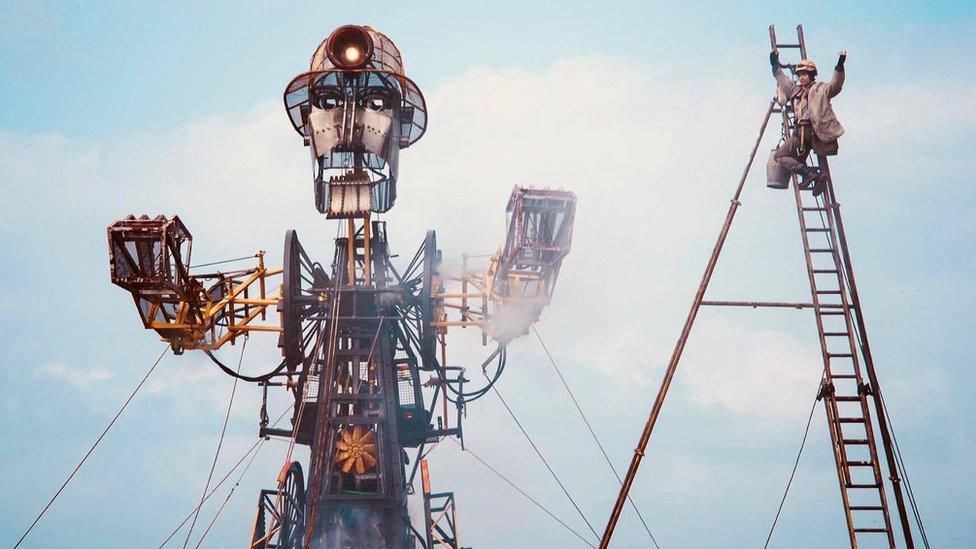
- Published16 February 2017
